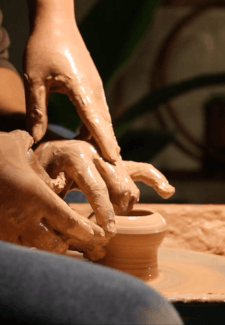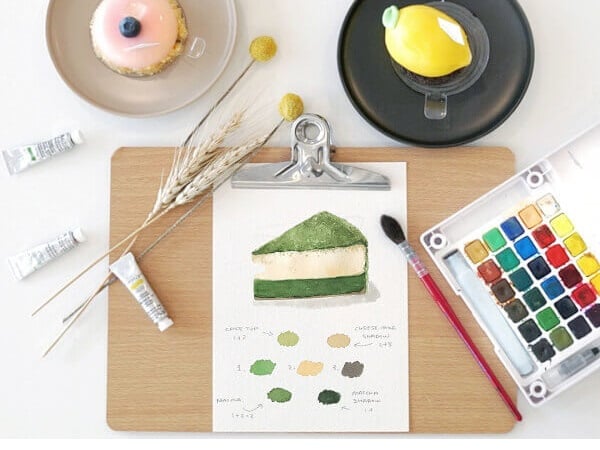For various reasons, many people overlook skateboarding as a hobby. It is reserved mainly for young, cool kids with trendy fashion sense and a seeming imperviousness to pain.
So it may come as a surprise that skateboarding as a sport and a hobby has been creating buzz in various professional fields, with physical therapists, metal health experts, and community organizers coming together to change the public discourse about skating.
What conclusions are they making? That we should all grab a board.
But first, the history:
Skateboarding is a relatively new sport, first appearing on the West Coast of the U.S. in the 1950’s. At this stage, the concept was crudely obvious: find a wooden plank, four wheels, a screwdriver, and a hill. Of course, the danger of the sport soon tainted its reputation, and many considered skateboarding to be a passing phase in popular culture, especially when it disappeared throughout the 60’s.
Thanks to die-hard skaters, the 70’s saw a resurgence of skateboarding in California. One of the innovations of this period was the transition from downhill slalom-style skating to more street-style, trick-based work. This was made possible by some key improvements to the sport, such as better wheels and board design, allowing skaters to discover and master previously unattainable techniques and tricks.
It was during this time that the hobby became particularly popular with the anti-establishment culture of the time, a relationship that would shape societal prejudice against skaters for decades. Despite the distaste, skateboarding was quickly becoming an iconic pastime in California, one that would prevail for the next forty years.
Skateboarding gained international credibility when technological advances allowed videographers to portray skater culture in wildly popular films such as Thrashin’ (1986) and Video Days (1991). Skateboarding video games soon took over the market, creating a following with millennials, who would grow up with skateboarding as a legitimate, established, and cool sport.
Today, the quintessential image of the skater is alive and well. However, more than just young, male skaters are enjoying the sport. With backing from various health professionals, the future of skateboarding looks to be broadening.
The Many Health Benefits of Skating
Perhaps the most visible benefit of learning to skateboard is the improvement in physical health. Skating requires muscle strength, endurance, and flexibility, all areas which are known (1) to contribute to physical wellbeing. It also helps our body in less noticeable areas, such as coordination and balance. According to various fitness sources (2), honing these skills is particularly beneficial in injury prevention and joint health.
Physicality is just the tip of the iceberg. Skateboarding offers an array of mental health benefits, as well. On the one hand, general physical exercise is proven (3) to improve mood, increase energy, and combat feelings of stress and depression. This is because the brain reacts to physical exertion by releasing serotonin and dopamine, two chemicals closely related to mood.
Yes, but what makes skateboarding so special? Surely those looking for a cure for the blues can run on a treadmill, no training (or bruises) required. Well, there are a few aspects to skateboarding that separate it from other forms of physical exercise.
One hidden advantage of skateboarding is the need to be outdoors. Though there are many indoor skateparks in this period of skating revival, most skaters practice their craft in the streets, where the tradition began. Studies (4) suggest that simply being outdoors can improve mental health as a result of increased circulation of Vitamin D in the body. The effect on depression is accentuated in green environments as opposed to urban settings, but anything is better than hitting the gym.
Let’s put physiology aside completely for a moment and highlight the other impacts of skating on mental health.

For example, a key element to skate culture is a laid-back attitude, but could it also be considered zen? The technicality of skateboarding requires enhanced attention to the body and the present moment, similar to yoga and other meditative practices. In the field of psychology (5), this process is known as mindfulness and has been proven to ease depression and anxiety by redirecting negative thought cycles and reducing stress. Some skaters, like Melani Hatter and Michel Loranger, have documented the role that skateboarding has had in their struggles with mental illness.
Skateboarding has one more altruistic trick up its sleeve, namely its sense of community. Groups like Skateboarding is Positive in the United States, lead by Nathan Kolar, are bringing the societal benefits of skating to light. Their advocacy covers topics like public safety, primary and secondary education, autism, and more. In their view, and with the backing of reputable Sociologists and not-for-profit organizations, skateboarding offers invaluable societal advantages, from alternatives to delinquency to transferable life skills that make the entire community a better place.
So, Why Aren’t We All Skating?
Who knows. Maybe skateboarding’s affiliation with anti-establishment sub-groups of the 80’s has lingering effects on new membership. Maybe those who didn’t start early feel uncomfortable trying later in life.
Or, maybe it just really hurts to fall the first few times.
But hopefully, all this talk of physical health, mental wellbeing, and societal improvement will open a few minds to the potential of skateboarding.
If you’re considering trying out the sport yourself, the best first step is to sign up for a beginner’s class, where an instructor can help you lay the foundation of your craft in a safe and controlled environment. An introductory class will go over basics like balancing on the board, turning, stopping, and falling safely.
There are plenty of Sydney skateboarding lessons available, in which beginners can learn from professionals and life-long skaters. Alternatively, many beginners find one-on-one instruction to be particularly helpful and less intimidating than trying out their skills in front of a group. Whatever appeals to you, just don’t forget your helmet and knee pads!
From there, skateboarding offers endless possibilities for improvement, from learning new tricks to downhill events. Even if you’re just in it for a reliable form of transportation, skateboarding can drastically improve your mental and physical wellbeing.
Happy skating!
References:
(1) sciencedaily.com
(2) passionateaboutfitness.com
(3) rcpsych.ac.uk
(4) health.harvard.edu
(5) apa.org



























